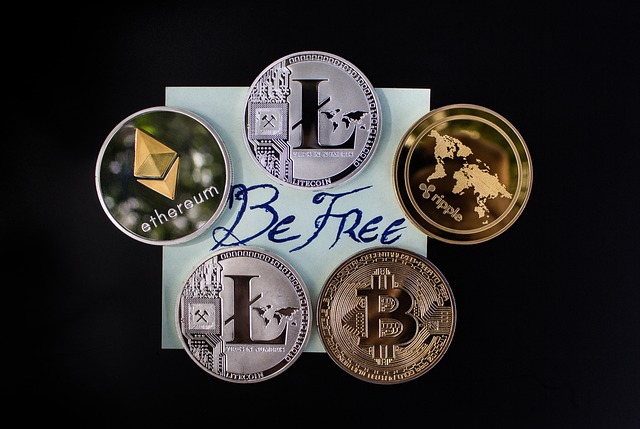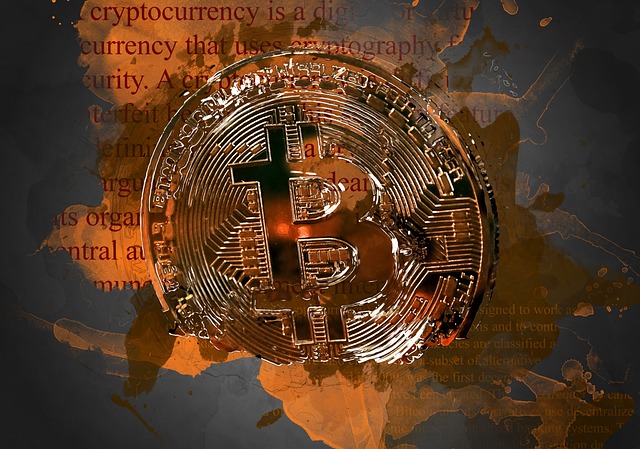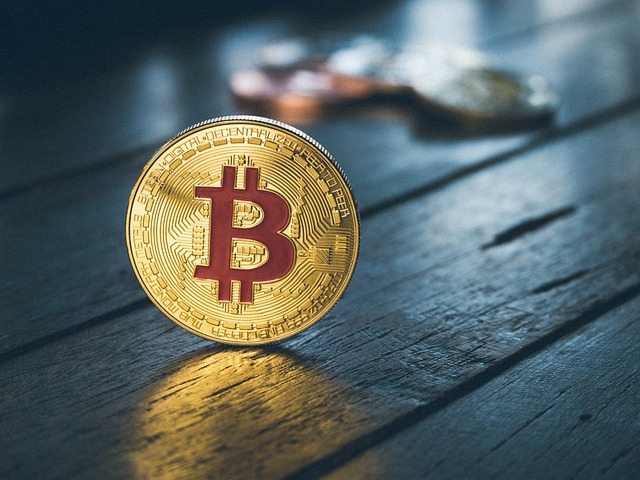Decentralized Finance: Pros and Cons for Financial Freedom
Decentralized Finance: Pros and Cons for Financial Freedom

What is Decentralized Finance?
Decentralized Finance, commonly known as DeFi, is a term that refers to a new and innovative way of conducting financial transactions. Unlike traditional finance, where transactions are typically controlled by central authorities like banks or governments, DeFi operates on a decentralized network, specifically on the blockchain. The concept behind DeFi is to remove intermediaries and enable individuals to have more control over their financial decisions.
One of the key principles of DeFi is the use of smart contracts, which are self-executing agreements that are coded on the blockchain. These smart contracts automatically execute transactions once certain conditions are met, without the need for third-party intermediaries. This not only reduces the risk of human error and fraud but also lowers transaction costs. Additionally, DeFi applications are accessible to anyone with an internet connection, allowing individuals from all walks of life to participate in the decentralized finance ecosystem.
The Benefits of Decentralized Finance
Decentralized finance, also known as DeFi, offers a plethora of benefits that are reshaping the financial landscape. One major advantage is the elimination of intermediaries, such as banks or financial institutions, which often come with high fees and long processing times. With DeFi, individuals have direct control over their funds, bypassing the need for traditional financial institutions’ approval. This not only reduces transaction costs but also speeds up the process, allowing for instant and seamless transactions.
Another significant benefit of DeFi is the increased accessibility it provides to financial services. Traditional financial systems often have barriers to entry, leaving millions of people without access to crucial services like loans, savings accounts, and investments. However, DeFi opens up these opportunities to anyone with an internet connection and a compatible device. This democratization of financial services has the potential to empower individuals worldwide, particularly those in underserved communities, by providing them with equal access and the ability to manage their finances effectively.
The Risks of Decentralized Finance
Decentralized finance, or DeFi, is undoubtedly an exciting and dynamic sector that has gained significant attention in recent years. However, like any financial system, it carries its fair share of risks. One of the primary concerns is the vulnerability to hacking and security breaches. With DeFi platforms operating on blockchain technology, which is known for its transparency, it can also attract malicious actors who are constantly searching for vulnerabilities to exploit. These hackers can potentially compromise users’ funds and personal information, leading to substantial financial losses and privacy breaches. Therefore, users must exercise caution and employ robust security measures while engaging with DeFi platforms.
Another risk associated with DeFi is the high level of volatility. While decentralization brings numerous benefits, it means that there is no central authority to stabilize the market or provide recourse in case of unexpected market downturns. This lack of oversight can result in sudden and severe fluctuations in asset prices, leading to substantial losses for investors. Moreover, the absence of regulatory frameworks can make it difficult to detect market manipulations, making DeFi susceptible to price manipulation schemes and fraudulent activities. As a result, individuals should carefully consider the risks involved and ensure they possess the necessary knowledge and research skills before participating in DeFi transactions.
How Decentralized Finance Promotes Financial Freedom
Decentralized finance (DeFi) has emerged as a promising solution to promote financial freedom for individuals around the world. By removing intermediaries and centralized control, DeFi platforms offer a more inclusive and accessible financial ecosystem. This empowers individuals by granting them direct control over their assets and financial decisions, without the need for traditional financial institutions.
The ability to participate in DeFi enables individuals to access a wide range of financial services and opportunities. For instance, individuals can lend or borrow funds without the approval of a bank, providing them with greater financial flexibility. Moreover, DeFi platforms offer individuals the opportunity to invest in various assets, such as cryptocurrencies and digital tokens, which were previously reserved for a limited group of investors. Through these means, DeFi fosters financial inclusivity and provides a means for individuals to grow their wealth and generate income.
The Role of Blockchain Technology in Decentralized Finance
Blockchain technology plays a crucial role in decentralized finance (DeFi) by providing a secure and transparent platform for financial transactions. Unlike traditional financial systems that rely on intermediaries such as banks, blockchain enables peer-to-peer transactions without the need for intermediaries. This decentralized nature ensures that trust is distributed among all participants, minimizing the risk of fraud or manipulation. Additionally, blockchain technology allows for the creation of smart contracts, which are self-executing contracts with predefined rules and conditions. These smart contracts enable automatic enforcement of agreements, eliminating the need for a third party to oversee the transaction. Overall, the integration of blockchain technology in DeFi offers a more efficient, cost-effective, and inclusive financial system.
Another key aspect of blockchain technology in DeFi is its ability to enable interoperability among different platforms and systems. Blockchain acts as a bridge that connects various applications, allowing for seamless and secure data sharing and collaboration. This interoperability eliminates the need for multiple intermediaries and reduces the friction in financial transactions. Additionally, blockchain technology provides a distributed ledger where all transactions are recorded and transparently verified by the network participants. This transparency fosters accountability and helps in building trust among users. By leveraging blockchain technology, decentralized finance aims to revolutionize the traditional financial landscape by providing a more efficient, inclusive, and secure system for individuals to access and manage their financial assets.
The Potential for Disrupting Traditional Financial Systems
Cryptocurrency and decentralized finance have the potential to bring about a significant disruption in traditional financial systems. By eliminating the need for intermediaries such as banks, decentralized finance allows individuals to have direct control over their finances. This means that transactions can be executed peer-to-peer, without the need for third-party approval or oversight. In addition, decentralized finance enables greater financial inclusion, as it removes barriers to entry for individuals who were previously excluded from traditional financial services. This has the potential to empower individuals in developing countries and underserved communities, who can now access financial services and participate in the global economy.
One of the key advantages of decentralized finance is its transparency.

Increased Access to Financial Services through Decentralized Finance
Decentralized finance (DeFi) has emerged as an innovative solution to increase access to financial services, particularly for individuals who have been traditionally underserved by traditional financial institutions. Through the use of blockchain technology, DeFi platforms facilitate peer-to-peer transactions, eliminating the need for intermediaries such as banks. This disintermediation results in reduced costs and barriers to entry, making financial services more accessible to a broader population.
One of the key ways in which DeFi promotes increased access to financial services is through its inclusive nature. Unlike traditional banking systems that often require individuals to meet stringent criteria, DeFi platforms are generally open to anyone with an internet connection. This means that individuals in remote areas or developing countries, who may not have easy access to brick-and-mortar banks, can still participate in financial activities. By leveling the playing field and breaking down geographic barriers, DeFi has the potential to empower individuals around the world by providing them with the tools and opportunities they need to build their financial future.
The Importance of User Privacy in Decentralized Finance
Decentralized finance (DeFi) has emerged as a disruptive force in the financial world, offering users a wide array of financial services without the need for intermediaries. One of the key aspects that makes DeFi so appealing is its emphasis on user privacy. In traditional financial systems, individuals often have to share personal information, such as their bank account details or social security number, with various institutions. However, DeFi protocols are designed in a way that allows users to maintain their privacy while still accessing financial services.
User privacy is vital in decentralized finance for several reasons. First and foremost, it gives individuals full control over their personal information. With concerns about data breaches and identity theft becoming increasingly prevalent, users can feel confident that their sensitive data will not be mishandled or exploited. Moreover, user privacy fosters a sense of autonomy and freedom, enabling individuals to transact and interact directly without the constant scrutiny or interference of third parties. This not only ensures confidentiality but also empowers users to take charge of their financial activities in a way that aligns with their individual preferences and values.
Challenges and Limitations of Decentralized Finance
While decentralized finance holds great potential for disrupting traditional financial systems and promoting financial freedom, it also comes with its fair share of challenges and limitations. One of the main challenges is the issue of scalability. Currently, decentralized finance platforms face limitations in terms of transaction speed and capacity. With the increasing popularity and demand for decentralized finance, the existing blockchain infrastructure may struggle to handle the volume of transactions, leading to delays and increased fees. This limitation not only hinders the user experience but also raises concerns about the scalability of decentralized finance as it aims to attract a larger user base.
Another significant challenge is the lack of regulation and oversight in decentralized finance. As decentralized finance operates outside the realm of traditional financial institutions, it raises questions about how to ensure consumer protection, prevent money laundering, and uphold compliance standards. Without clear regulations, users are exposed to potential risks such as scams, fraudulent activities, and inadequate security measures. Additionally, the absence of centralized authorities makes it difficult to resolve disputes or seek recourse in case of any issues or disputes related to financial transactions.

The Future of Decentralized Finance and Financial Freedom
As decentralized finance continues to gain traction, the future looks promising for those seeking financial freedom. With the growing adoption of blockchain technology, the potential for disrupting traditional financial systems is becoming more evident. Decentralized finance offers individuals the opportunity to bypass intermediaries and have direct control over their financial transactions.
One of the key benefits of decentralized finance is the increased access to financial services it provides. The traditional financial system often excludes individuals who do not meet certain criteria or live in regions with limited banking infrastructure. However, with decentralized finance, anyone with internet access can participate in the global financial market. This inclusivity opens up new opportunities for individuals who were previously underserved or excluded from traditional financial systems.
Moreover, the importance of user privacy in decentralized finance cannot be overstated. As financial transactions increasingly move online, concerns about data privacy and security grow as well. Decentralized finance offers individuals the ability to transact without having to trust a centralized institution with their personal information. This increased privacy empowers individuals to have more control over their financial data and reduces the risk of data breaches.
While decentralized finance holds immense potential, there are also challenges and limitations to consider. Scaling the technology to handle a large number of transactions efficiently is one of the primary hurdles. Additionally, regulatory frameworks surrounding decentralized finance are still evolving, which can create uncertainty and hinder mainstream adoption.

In conclusion, the future of decentralized finance holds great promise for financial freedom. As blockchain technology advances and adoption increases, the potential for disrupting traditional financial systems becomes more evident. The inclusive nature of decentralized finance, coupled with the importance of user privacy, offers individuals newfound control over their financial transactions. However, overcoming challenges and limitations will be essential for decentralized finance to reach its full potential in the years to come.
What is Decentralized Finance?
Decentralized Finance, also known as DeFi, refers to a system where financial transactions and services are conducted on a decentralized network using blockchain technology, without the need for intermediaries like banks or financial institutions.
What are the benefits of Decentralized Finance?
Decentralized Finance offers several benefits, such as increased financial inclusivity, transparency, lower fees, faster transactions, and the ability to access financial services without relying on a centralized authority.
What are the risks of Decentralized Finance?
While Decentralized Finance brings many advantages, it also comes with risks. These risks include smart contract vulnerabilities, hacking, regulatory uncertainties, and potential scams or fraudulent activities within the decentralized ecosystem.
How does Decentralized Finance promote financial freedom?
Decentralized Finance promotes financial freedom by providing individuals with more control over their finances. It eliminates the need for intermediaries, allowing people to access financial services, invest, borrow, and save without restrictions, censorship, or discriminatory practices.
What is the role of Blockchain technology in Decentralized Finance?
Blockchain technology plays a crucial role in Decentralized Finance as it provides the foundation for secure and transparent financial transactions. It ensures the immutability and integrity of financial data, enabling trustless interactions and smart contracts.
Can Decentralized Finance disrupt traditional financial systems?
Yes, Decentralized Finance has the potential to disrupt traditional financial systems by challenging the dominance of large financial institutions. It introduces a more open and inclusive financial ecosystem where individuals have more control over their money and financial decisions.
How does Decentralized Finance increase access to financial services?
Decentralized Finance eliminates the need for traditional intermediaries and geographical limitations, making financial services more accessible to anyone with an internet connection. It allows people from underserved areas or without access to banking services to participate in the global financial system.
Why is user privacy important in Decentralized Finance?
User privacy is important in Decentralized Finance to protect personal and financial information. It ensures that individuals have control over their data and can transact without exposing sensitive details to potential threats or unwanted surveillance.
What are the challenges and limitations of Decentralized Finance?
Some challenges and limitations of Decentralized Finance include scalability issues, regulatory hurdles, user adoption barriers, potential security vulnerabilities, and the need for interoperability between different blockchain networks.
What does the future hold for Decentralized Finance and financial freedom?
The future of Decentralized Finance looks promising, with the potential to revolutionize the financial industry. It has the power to empower individuals, provide financial services to the unbanked, and reshape the way we think about money and traditional financial systems.
Todays Featured Product:
Buy, exchange and grow your crypto securely with a Ledger hardware wallet, combined with the Ledger Live app. It’s never been easier to keep your crypto safe and accessible. Buy direct from Ledger.com and get todays Special Offers Here.




